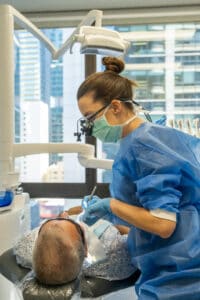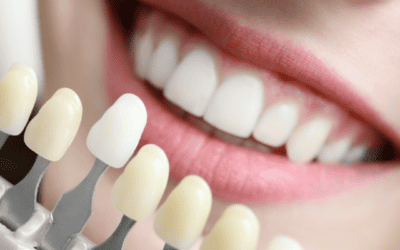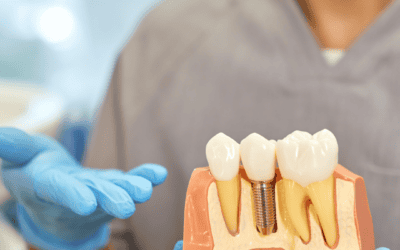Every November in the United Kingdom is Mouth Cancer Action Month. It is run by the Oral Health Foundation, a UK charity aiming to raise awareness of mouth cancer. They want to save lives by promoting prevention and early detection (1). So here at Dentistry On George we’ll be bringing you some mouth cancer awareness facts throughout the month of November.
Mouth cancer is also known as oral cancer and is used to describe a number of cancers which start in the mouth. Oral cancer is a type of head and neck cancer, which is cancer that can involve any one of the many structures of the head and neck. Oral cancers can occur on the lips, tongue, floor of mouth, cheeks, gums, roof of mouth, tonsils and salivary glands (2).
The number of people being diagnosed with mouth cancer grew by around a third in the last decade. Mouth cancer remains one of very few cancers which is actually predicted to increase further in the coming years.
Although risk factors (such as smoking and alcohol) are responsible for many mouth cancers, it is a disease that can affect anyone.

Make sure to keep your regular dental
appointments where your dentist will look
for signs of oral cancer.
What are the symptoms of mouth cancer?
Symptoms of mouth cancer can include:
- A persistent ulcer
- A lump in your neck
- A swelling or sore on your lip that won’t heal
- Difficult or painful swallowing
- Changes in speech, including hoarseness
- Bleeding or numbness in the mouth
- White or red patches anywhere in the mouth, for example on the gums, tongue or roof of the mouth
Know what to look out for
- Don’t leave a mouth ulcer unattended for more than three weeks.
- Don’t ignore any unusual lumps or swellings or red and white patches in your mouth.
- Regularly check your own mouth, lips, cheeks, head and neck for anything out of the ordinary (1).

Make sure to check your tongue and lining
of your mouth for anything unusual.
Who is at risk of mouth cancer?
Cancers of the mouth can affect anyone, but it is more common in men over 40 years old.
The main risk factors for mouth cancer:
- Tobacco
- Alcohol
- Viruses (human papillomavirus; Epstein-Barr virus)
- Poor oral hygiene and gum disease
- Family history of mouth cancers
- Exposure to the sun (cancers of the lip)
- Betel nut chewing

Smoking increases your risk of oral cancer
by six times.
How can I prevent mouth cancer?
Smoking causes 59% of mouth cancers in Australia (2). It actually increases your risk of oral cancer by six times (3). Excess alcohol consumption causes 31% of oral cancers (2). Therefore to reduce your risk factors, quit smoking and reduce your alcohol consumption.
The Australian guidelines recommend healthy adults drink no more than 2 standard drinks on any one day. An average glass of wine served in a pub has 1.5 standard drinks.

Recommended alcohol intake is 2 standard
drinks in any one day.
Cancers of the lip are commonly associated with UV exposure, which is why it is important to protect yourself from the sun (2).
Signs of mouth cancer are often first picked up by your dentist. This is why regular dental examinations are so vital. Your dentist isn’t just checking your teeth, but also your gums and the soft tissues of your mouth for any signs of abnormalities. This is why your dentist will ask you to poke your tongue out – don’t worry, you’re not being rude!

Stick your tongue out at your dentist!
Prevention Is Better Than Cure
Mouth cancer is easily cured if treated in its earlier stages, but unfortunately half of patients don’t consult with their dentist or doctor until their disease is well advanced (3). Get checked straight away if you notice any of the signs of symptoms listed above.
Squamous cells make up the lining of your mouth, nose and throat. Most mouth cancers originate in these surface cells. Without treatment squamous cell carcinoma can spread deeper into other tissues. This includes muscle and bone, but also spread to nearby structures such as the throat or lymph glands of the neck. Mouth cancer can migrate (metastasise) to other parts of the body if it accesses the bloodstream or lymphatic system (3).
This is why early detection and treatment are vital. In addition, one of the risk factors for oral cancer is poor oral hygiene and gum disease. Therefore the more you are looking after those teeth and getting professional dental cleans, the better.
When did you last have your mouth checked? It it’s been a while, make sure to schedule your dental examination. You can book online here.
Resources
1 https://www.dentalhealth.org/mouth-cancer-action-month
2 https://www.cancer.org.au/about-cancer/types-of-cancer/mouth-cancer.html
3 https://www.betterhealth.vic.gov.au/health/conditionsandtreatments/mouth-cancer



